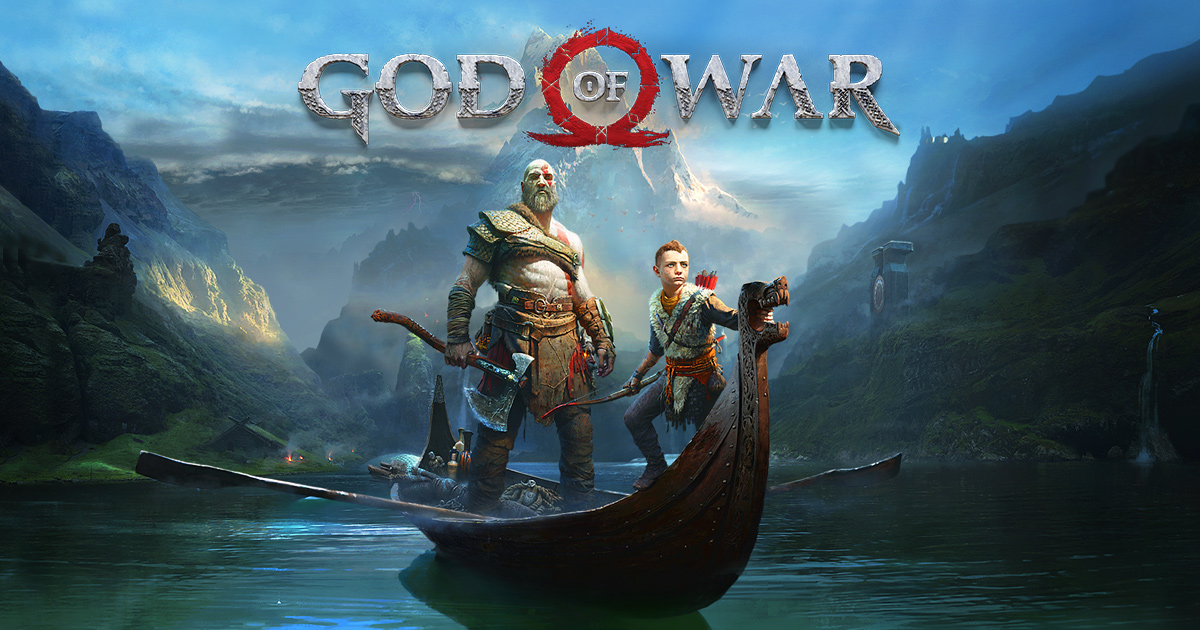God of War Director Takes on Toxic Masculinity and Parenthood
The eighth installment of Playstation's flagship series features a newer, kinder Kratos


There are several new changes in the eighth installment of SIE/Santa Monica Studios’ latest entry into the God of War franchise. The story leaves Greek mythology behind in favor of Norse mythology, populating the landscape with elves, trolls, and wolves, to name a few. Kratos’s signature double-chained blades,the Blades of Chaos, have been replaced with the Leviathan Axe. The game features a third-person, over-the-shoulder free camera this time around, along with open game play and NO camera cuts.
The biggest change however, is Kratos himself. No longer a rage-filled model of hyper masculinity, the latest installment features a kinder, gentler Ghost of Sparta, accompanied by his young son Atreus. Well, maybe not that kind and gentle; the dude is still a brutally lethal warrior who leaves fields of bodies in his wake. The new game takes place after the death of Kratos’ second wife and Atreus’ mother, and follows father and son as they journey to fulfill her promise and spread her ashes at the highest peak of the nine realms. Kratos keeps his troubled past a secret from Atreus, who is also unaware of his true nature of being a god.
In an interview with Polygon, God of War director Cory Barlog discusses the evolution of the character, saying:
“It’s just, I feel like as I get older, I’m looking at things a little bit differently. This lesson that I hoped to pass on to [my son]: that the concepts of strength and emotional vulnerability and the ability to sort of be free to feel the range of emotions, that these are not two warring or diametrically opposed concepts.
That it is what makes us the whole human, right? And who better to be a canvas than a person who is so broken, who is so much of a fragment of a person, whose life was so traumatic? At 8 years old, [Kratos was] entered into the most fearsome military training program in the history of mankind. The Spartans were turned into machines, instruments of war, and to have that be the way that you’re ushered into your formative years, it will absolutely turn you into what Kratos became.
There’s very little humanity that he had left [after the previous God of War games], but I do not believe that anyone is so far gone that they don’t have some way to pull them back from the brink. I think it’s been a fantastic, dramatic chance to be able to take that on for Kratos.”
Kratos’s quest to rediscover his humanity and raise his son add a whole new level of dimensionality to the anti-hero, as he struggles to adjust to life as a single parent. Barlog goes on to discuss Kratos’s journey back to his own humanity, saying:
“So we are, in a large portion, were responsible for the fact that [Kratos] is the monster at all times, and now we are in turn taking our responsibility to help him balance these things. The journey is that he’s not very good at it in the beginning, and that’s what’s so fascinating, right? That a young kid, a 10- to 12-year-old child, can teach this guy who’s lived for hundreds of years? Who’s ascended to the throne of the pantheon of Greek gods, and been responsible for the downfall of so many of these deities. He has so much learning to do.
Honestly, if that can be taken away, if people look at it and they can see there’s a complexity to being a human being … and also that there’s different ways [to behave], not just the way it’s been done before.”
The only way we can combat toxic masculinity is by upholding men and male characters not created in its image. It may be silly to credit a game like God of War for this, but I’ll take what I can get. The more nuanced, emotional male figures in gaming and pop culture, the better.
(via Polygon, image: SIE/Santa Monica Studios)
Want more stories like this? Become a subscriber and support the site!
—The Mary Sue has a strict comment policy that forbids, but is not limited to, personal insults toward anyone, hate speech, and trolling.—
Have a tip we should know? [email protected]
